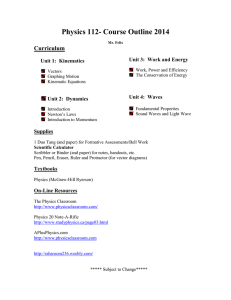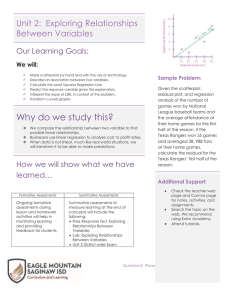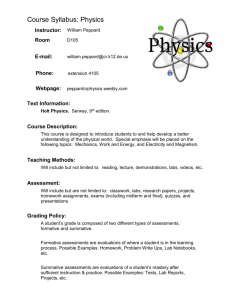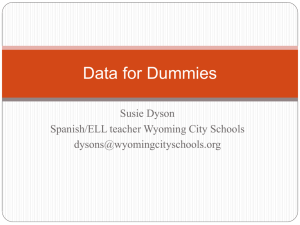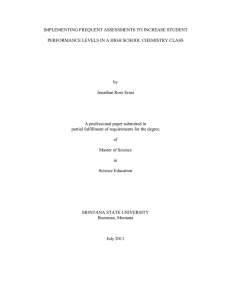File - ROOM 236
advertisement
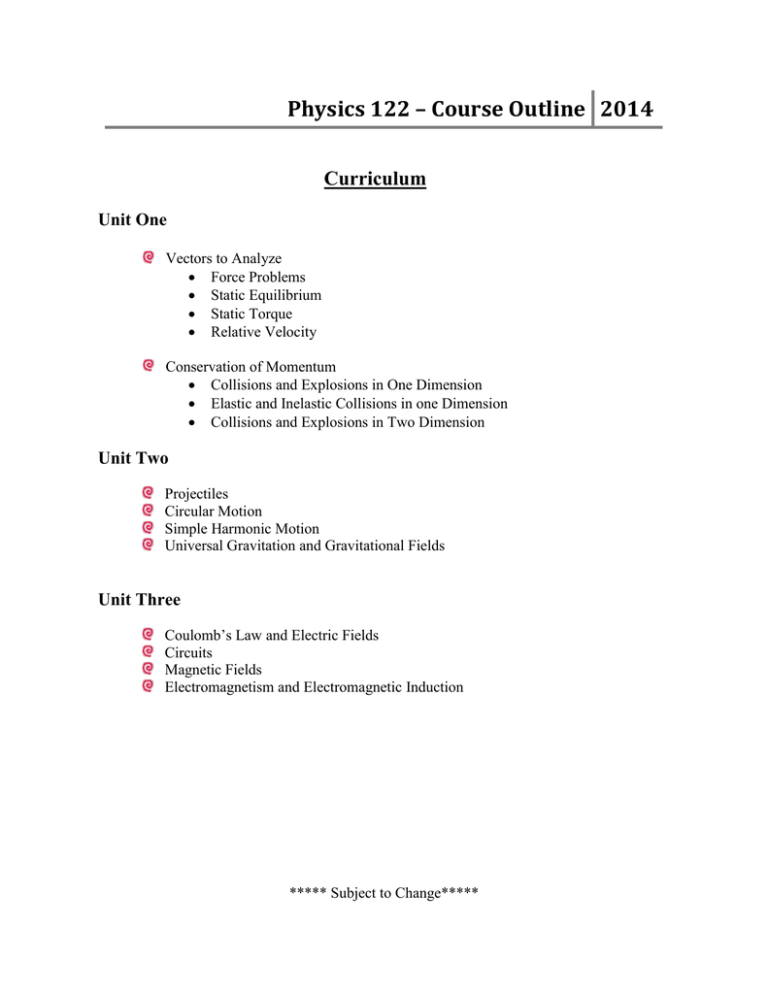
Physics 122 – Course Outline 2014 Curriculum Unit One Vectors to Analyze Force Problems Static Equilibrium Static Torque Relative Velocity Conservation of Momentum Collisions and Explosions in One Dimension Elastic and Inelastic Collisions in one Dimension Collisions and Explosions in Two Dimension Unit Two Projectiles Circular Motion Simple Harmonic Motion Universal Gravitation and Gravitational Fields Unit Three Coulomb’s Law and Electric Fields Circuits Magnetic Fields Electromagnetism and Electromagnetic Induction ***** Subject to Change***** Supplies Room 236 1 Duo Tang (and paper) for Formative Assessments/Bell Work Scientific Calculator Scribbler or Binder (and paper) for notes, handouts, etc. Pen, Pencil, Eraser, Ruler and Protractor (for vector diagrams) Textbooks Physics (McGraw-Hill Ryerson) Handouts, notes and can be found on the following site. http://sshsroom236.weebly.com/ On-Line Resources The Physics Classroom http://www.physicsclassroom.com/ Physics 20 Note-A-Rific http://www.studyphysics.ca/page04.html APlusPhysics.com http://www.physicsclassroom.com MIT OpenCourseWare http://ocw.mit.edu/courses/physics/8-01physics-i-classical-mechanics-fall-1999/ Assessments Formative Assessments will be used to gather information to help you monitor and adjust your learning. Summative Assessments (assignments, quizzes, projects, and tests) will be used to determine what you have learned by the end of a learning period. Your final mark will be calculated by combining your summative assessment mark and your exam mark (65/35). Term 1: 32.5% Term 2: 32.5% Final Exam: 35% In accordance with SSHS administrative policy, ALL of your essential work needs to be completed in order to receive a report card grade. If any work is incomplete, your report card will show no mark available until the work is received. The Pass Mark for this course is 60% ***** Subject to Change***** Expectations Students are expected to take responsibility for their own learning. Students are responsible for obtaining any work covered (including homework) during absences. It is expected that students will spend a minimum of 30 minutes on Physics homework every night. Homework will be assigned daily, and students are expected to review material covered each day in order to keep up. Extra help is available by request at lunch time and at Guided Study. It is up to the student to request and arrange these extra help sessions. Extra help may be requested only after the student has attempted all assigned problems, read all of the relevant material, and then tried all problems again. Physics in not a passive subject you cannot learn by watching, only by doing!!! *Late assignments will not be accepted once graded and passed back! Quiz: If you are absent the day of the quiz or test unexcused you will receive a grade of zero! If excused you will be exempt from that quiz. ***** Subject to Change*****
